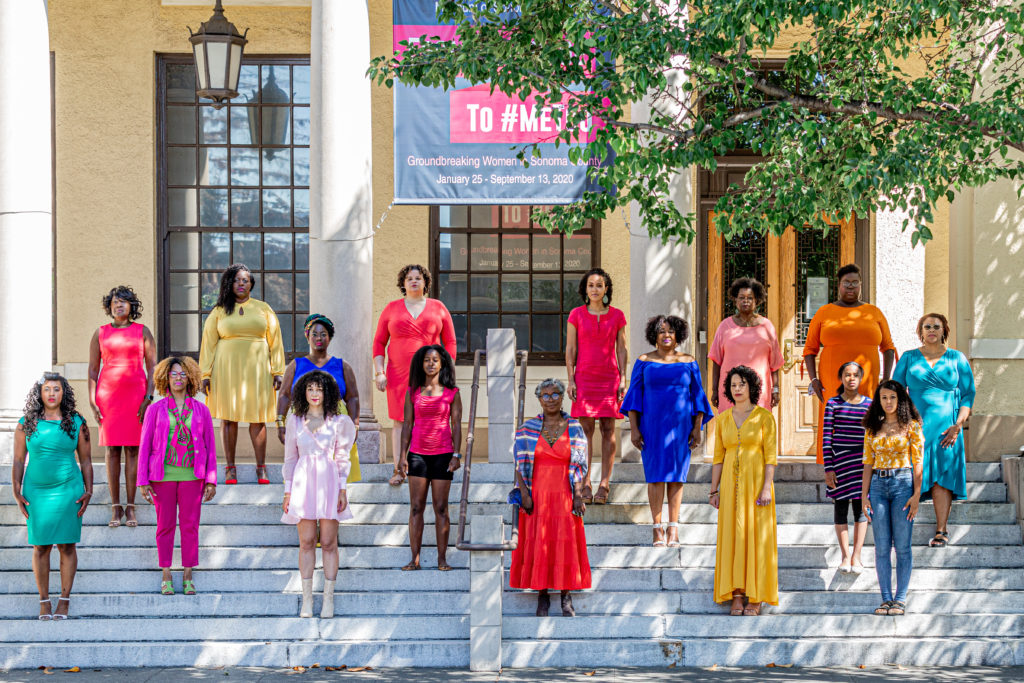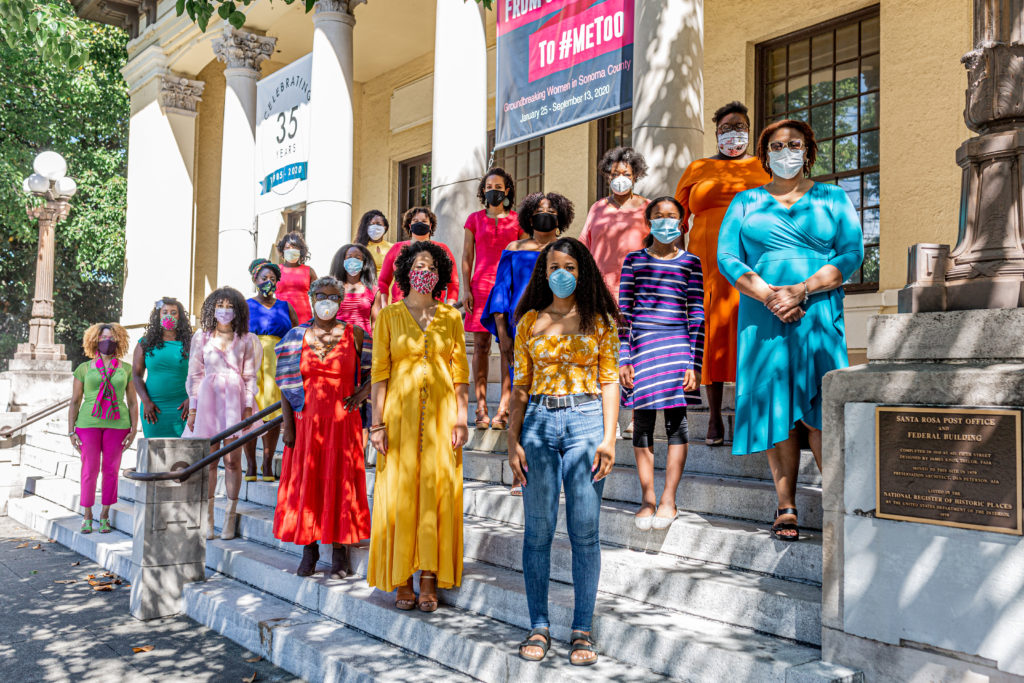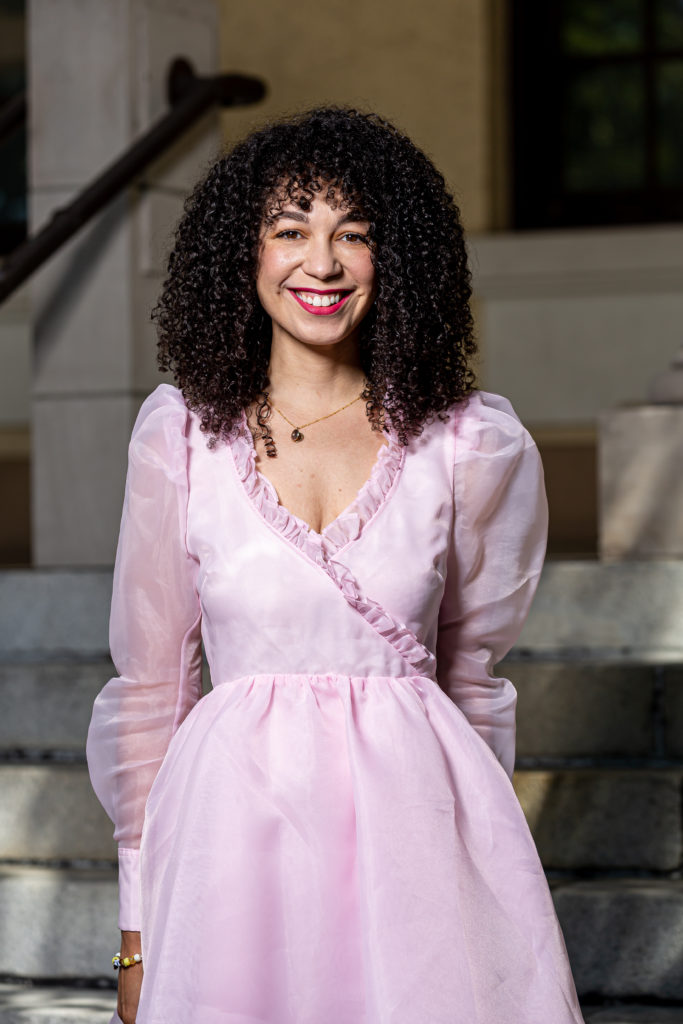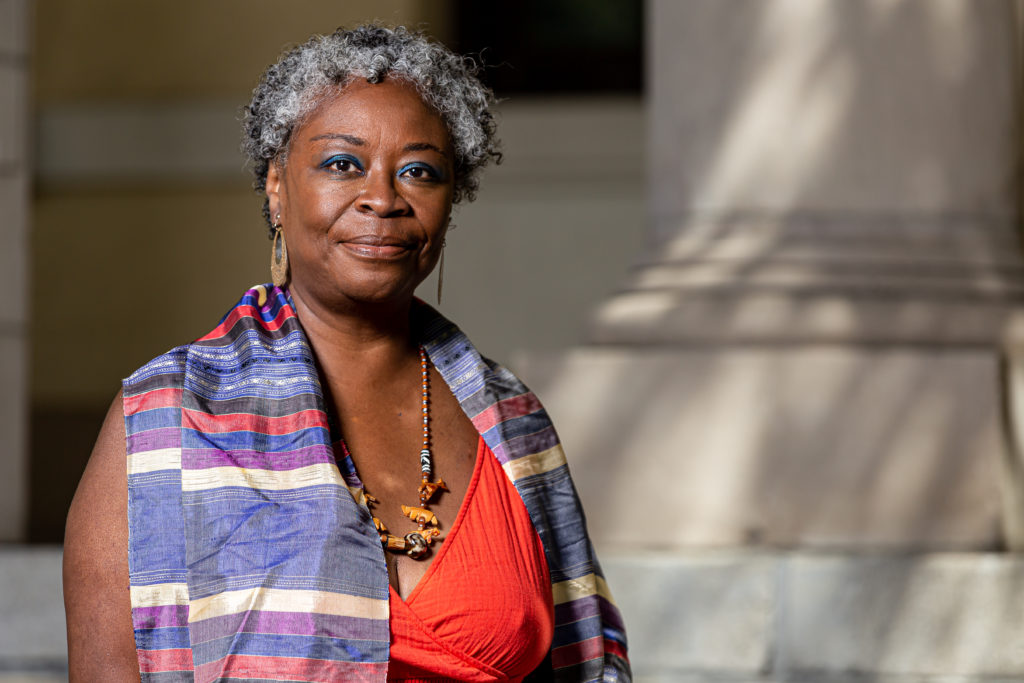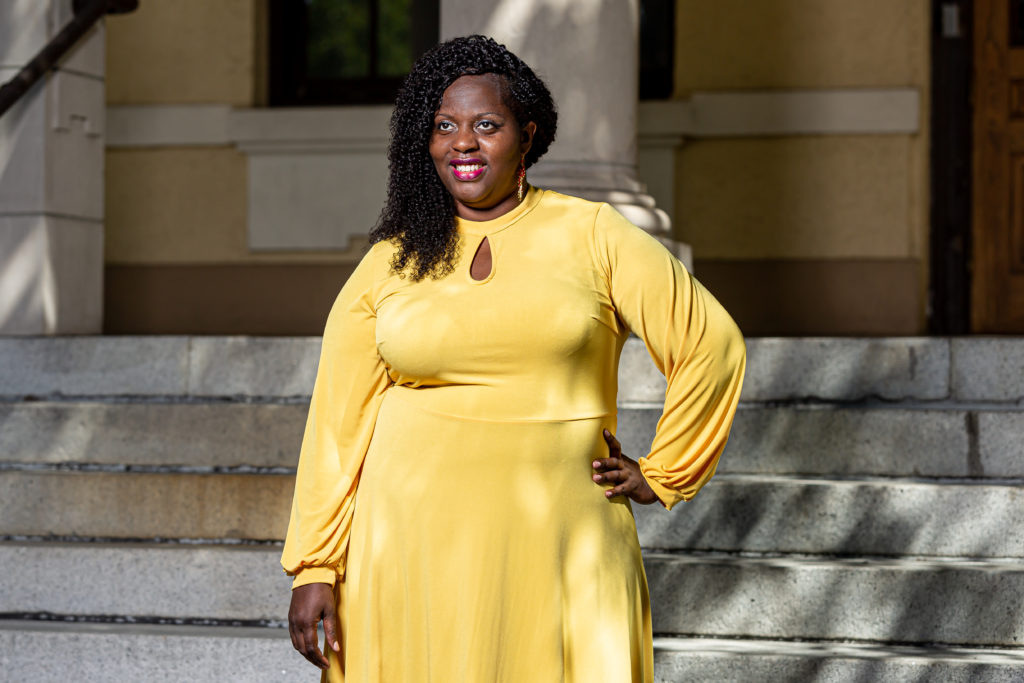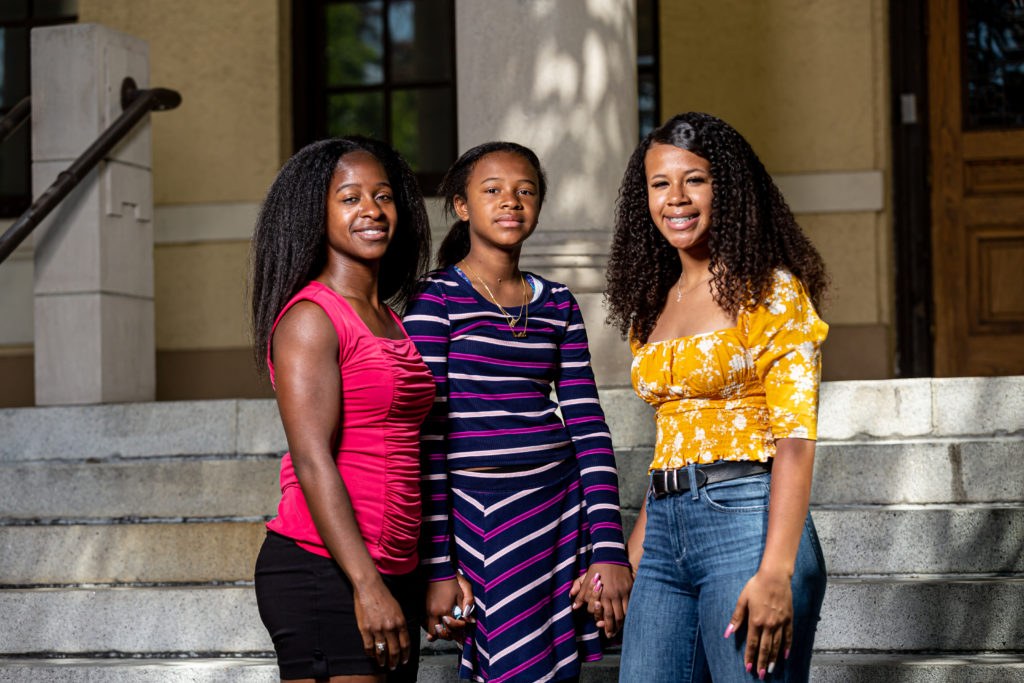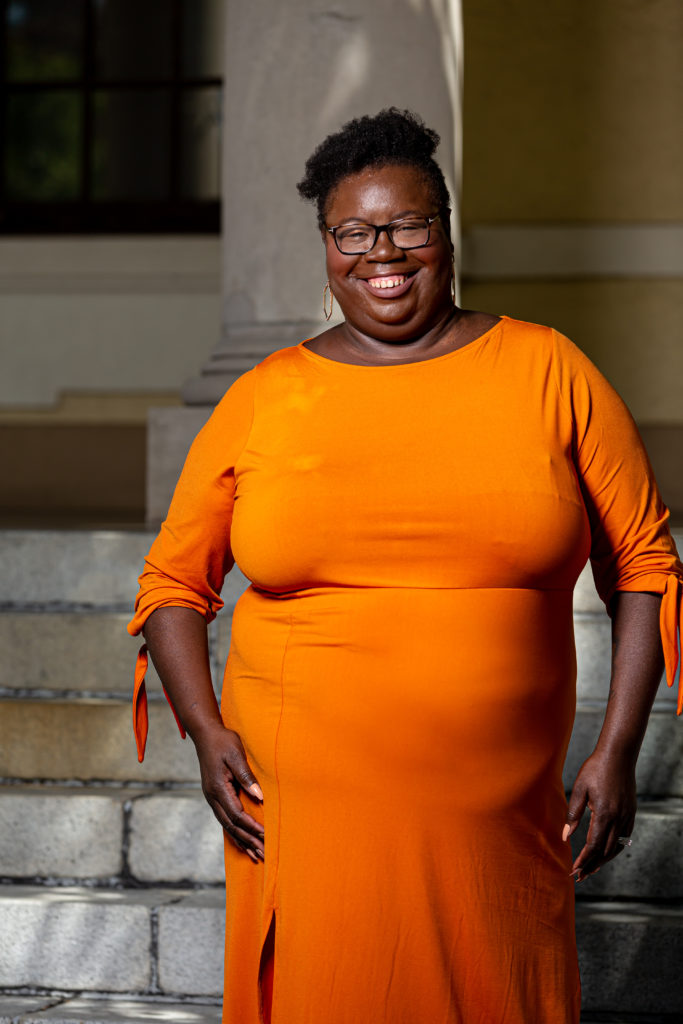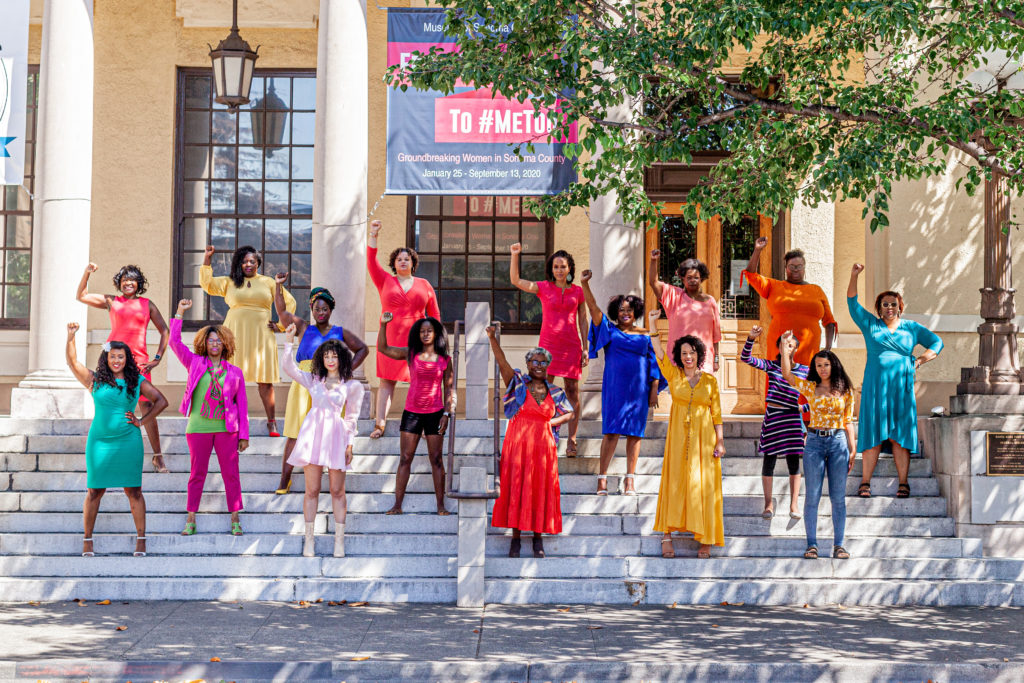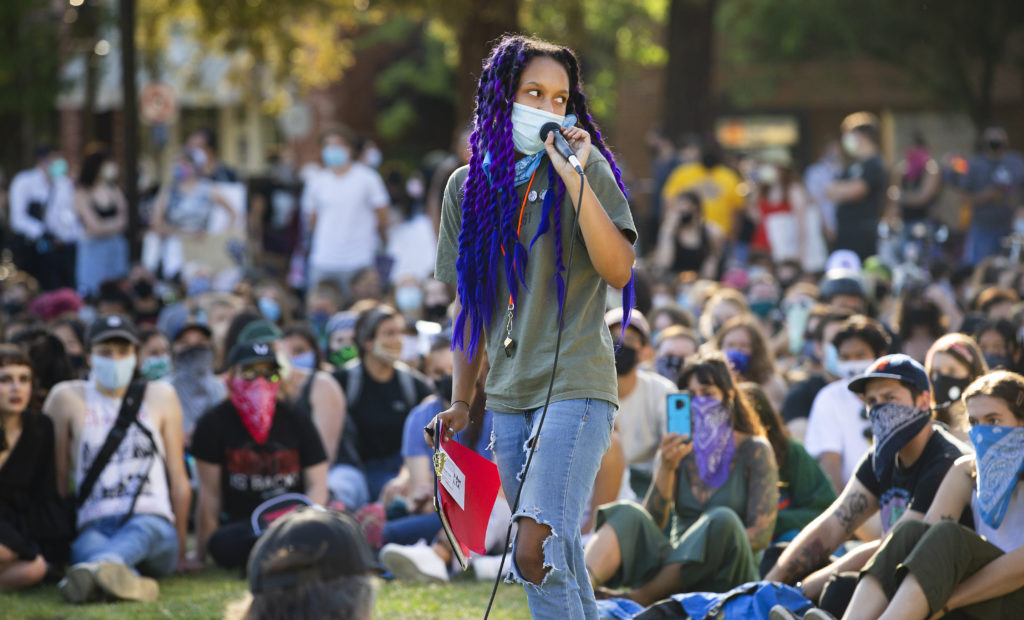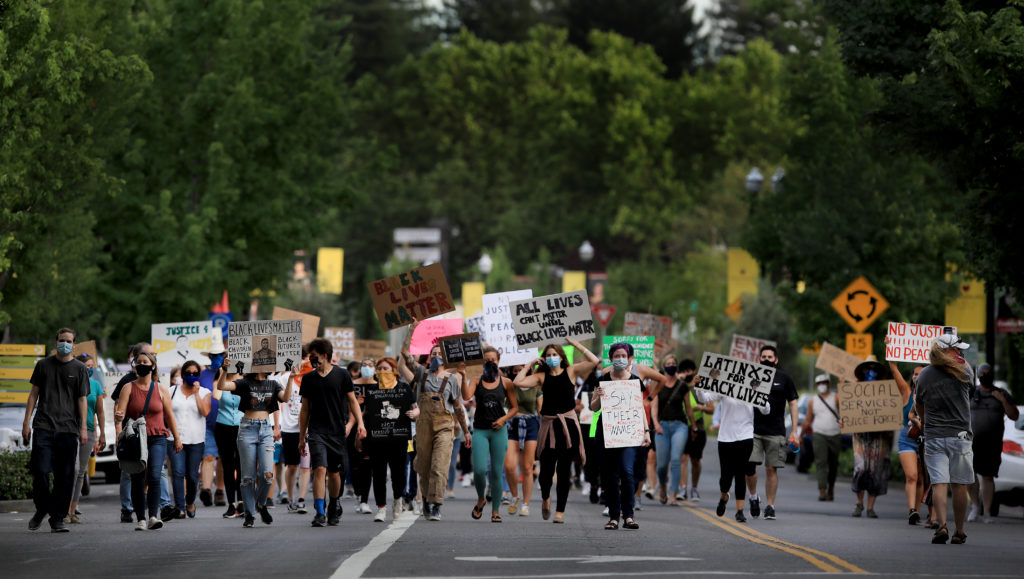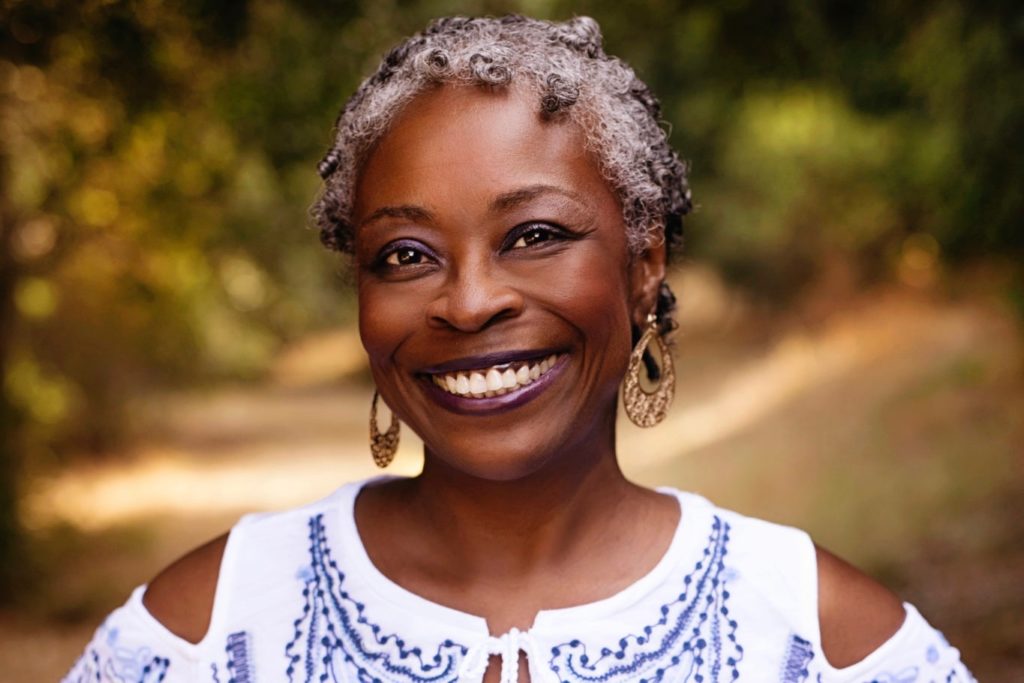Seventeen Black women wearing vibrant, cheerful colors posed on the steps of the Museum of Sonoma County last Sunday, proud and unapologetic.
“Right fist in the air, strong and confident,” said Malia Anderson, a 43-year-old Santa Rosa wardrobe stylist, as a photographer clicked away. Cars drove by and honked in support, and the women cheered through facial masks.
Anderson had organized the photoshoot for the local Black women as a way to elevate their voices and connect them during a momentous, historic shift in the Black Lives Matter movement in Sonoma County and across the U.S.
“Obviously our world is kind of upside down and sideways right now and there are so many things going on, and I was trying to figure out what my place in the whole thing was,” said Anderson, CEO of Style by Malia. “I realized that part of the reason, as a Black woman, I couldn’t really figure out where my story fit was because nobody was telling my story.”
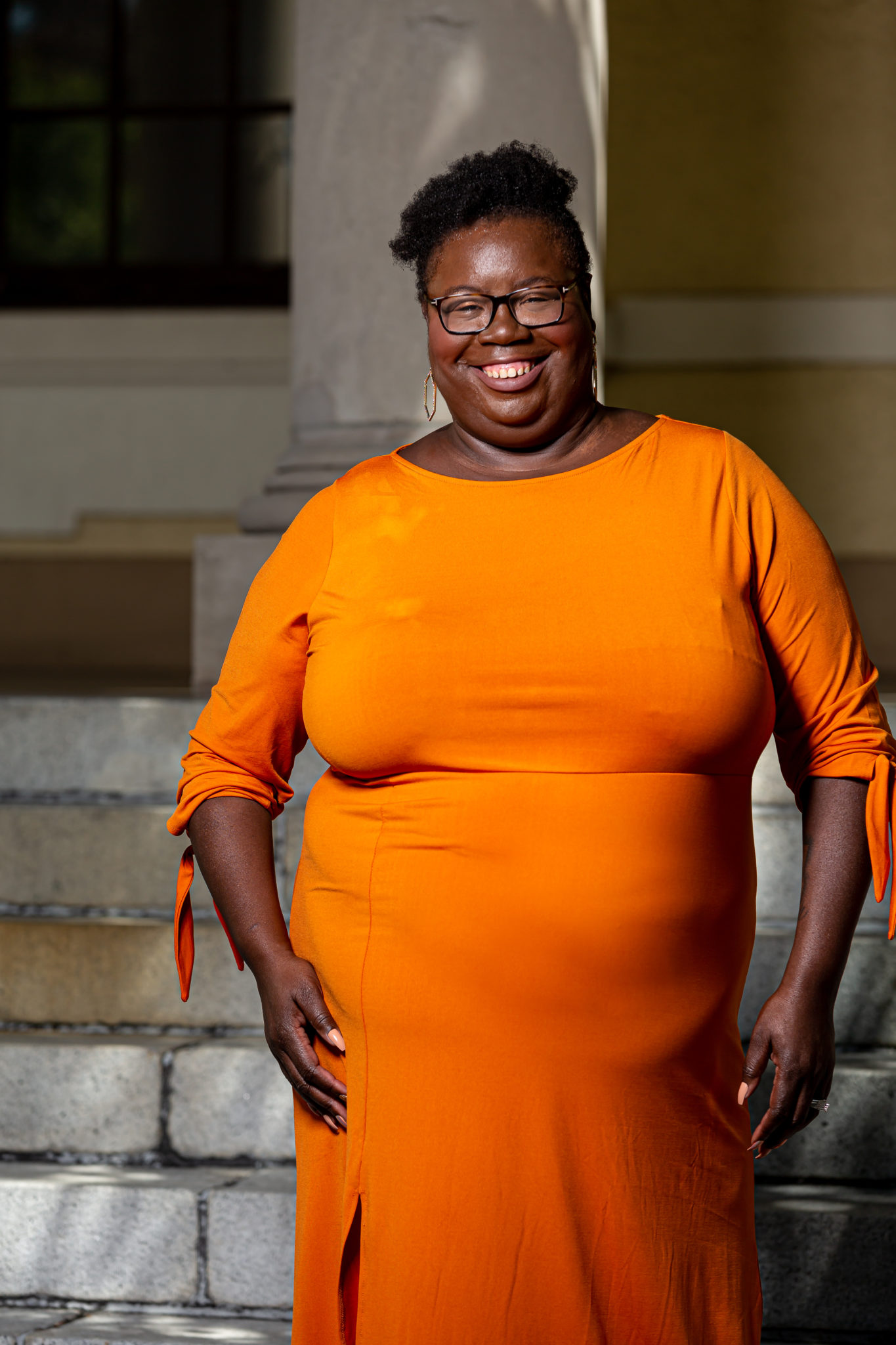
Anderson had been thinking recently about Breonna Taylor, Sandra Bland, Dominique Rem’mie Fells and Riah Milton — Black women and and trans women whose deaths, including at the hands of police in Taylor’s case, often have been overshadowed.
“Why are Black women not at the forefront of this movement?” Anderson said.
While the photoshoot was fun and uplifting for the participants, for many, it also was a political act to raise the visibility of Black women in public discussion and media representation. Several of them pointed to coverage of Taylor’s death compared with the more prominent coverage of George Floyd’s death in Minneapolis, which has sparked weeks of protests across the country.
Gayle Whitlock, a 62-year-old licensed marriage family therapist, called the photoshoot “a radical act of self-care.”
“I wanted to not only come out and support Malia’s mission but also have my voice heard as a Black woman in this town that’s not the most affirming place to live if you are a person of color,” said Whitlock, who specializes in helping women through racism, anxiety, depression and trauma at New Leaf Counseling Services in Santa Rosa.
“I felt hopeful and I felt empowered and I felt strong. I felt the strength of other Black women, other beautiful women who are deciding to be heard,” she said.
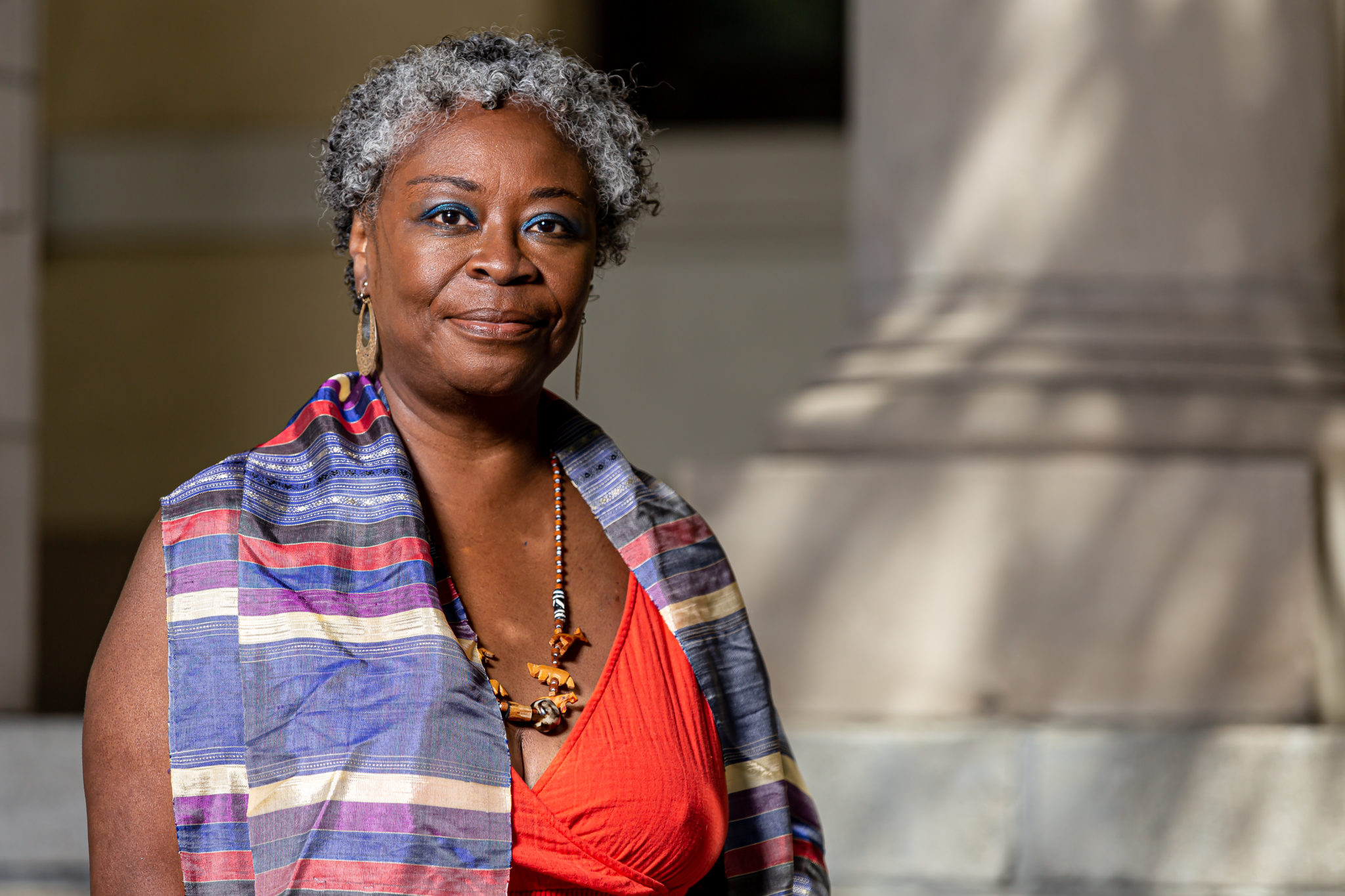
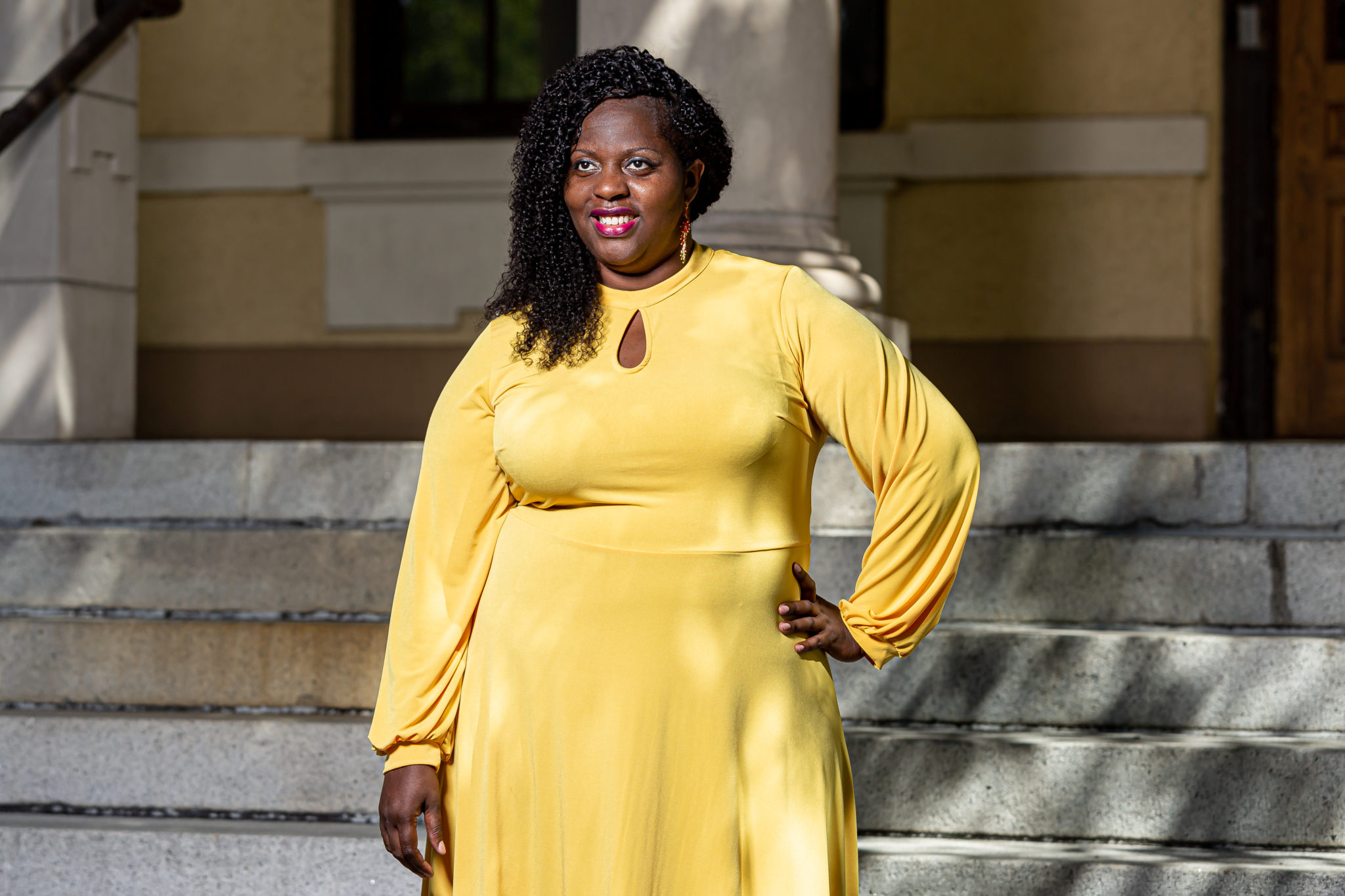
Letitia Hanke, 44, has an autoimmune disease and couldn’t risk exposure to the novel coronavirus in large crowds of protestors, but she supports the Black Lives Matter movement. She credits this year’s wave of activism to young people and to the pandemic.
“This is my protest. This is my way of showing my strength in this community,” said Hanke, president and CEO of Alternative Roofing Solutions.
“I think COVID has actually helped this situation in many ways because people have the time to protest, to research, watch the videos, watch the documentaries. That’s what’s happening right now.”
Anderson chose the Museum of Sonoma County as the site for the photoshoot because the movement and the moment felt historic, and because it’s in downtown Santa Rosa, near the site of weeks of Black Lives Matter marches.
“Putting women together who look like each other, who live in one special world and who get it — you’re like, ‘Oh this is what power feels like,’” Anderson said. “It carries me through to know that I’m a part of something, and I hope it carries these women through.”
Whitlock said the deaths of Taylor, Floyd and Ahmaud Arbery, a 25-year-old unarmed Black man in Georgia fatally shot while on a run, propelled her to protest in the crowds while wearing a facial mask.
“I stepped back and felt the pandemic that has been affecting my life, my son, the people I care about and love, has been going on for 401 years, and I have to say something. I have to speak out. I have to be engaged,” she said.
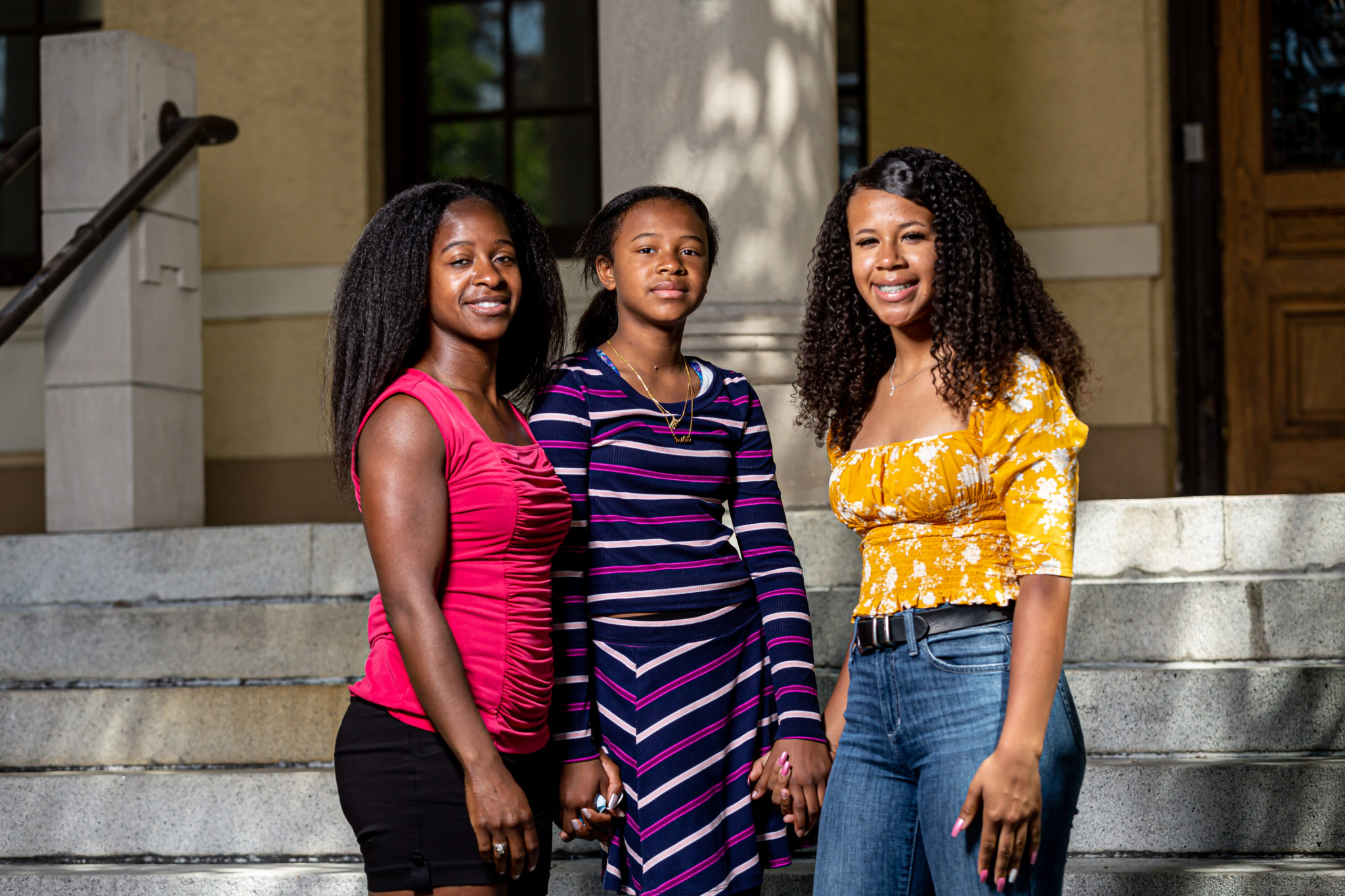
Shawntel Reece, a 40-year-old Santa Rosa social worker, came to the photoshoot with her two daughters, ages 15 and 11. A member of the NAACP, Reece said she appreciates the momentum of the movement and seeing white people bring their kids to protests in recent weeks, but more systemic changes need to be made.
“I get pulled over for nothing,” said Reece, who estimated that she gets pulled over by the police once every three months.
Reece said she’s bolder with police now. She always asks, “Are you going to shoot me?” and mentions that her daughters are in the car.
At a recent rally, her daughters each held a sign indicating what they want for their futures: one wants to be a physical therapist, the other, an engineer. Reece’s sign read, “I want my kids to be alive.”
Blatant racism and racist microaggressions are a part of everyday existence as a Black woman in the U.S., including Sonoma County, said several women at the photoshoot.
“I’ve been called the N-word more times than I care to think about, and that hurts every time I hear it,” Anderson said. “I’ve been called the N-word just walking down the street minding my own business.”
Recently, Anderson was walking in downtown Petaluma with her white family members when a stranger in a passing car shouted, “All lives matter!”
Whitlock recalled being asked by a former coworker if she was going to bring fried chicken to a work potluck. Hanke recalled swastikas on her car.
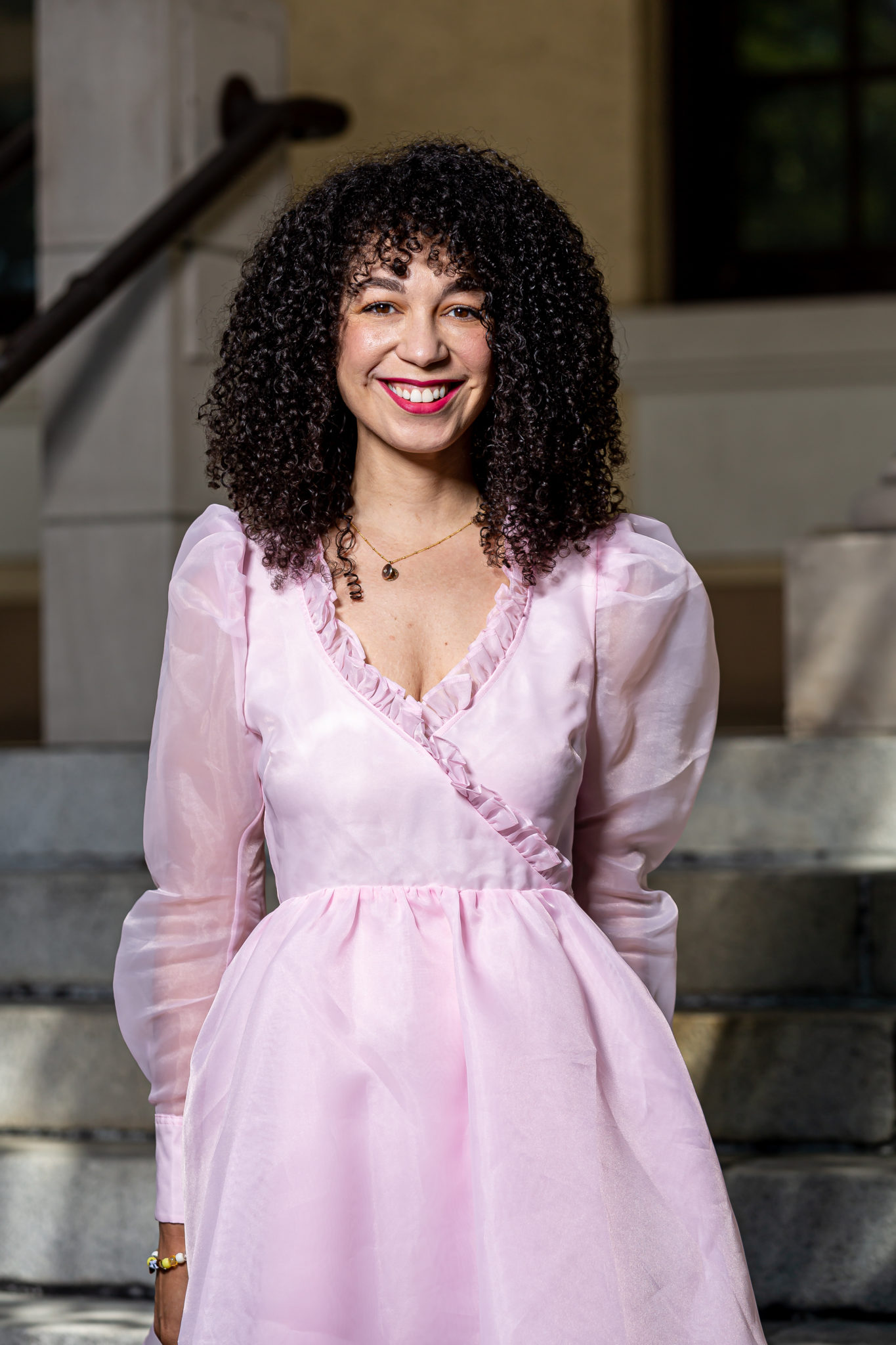
When Amber Lucas was a preteen, girls at her school would exchange locks of each other’s hair tied in a bow as a friendship keepsake. She remembered being laughed at by a classmate when it was her turn to cut a lock of hair.
“Ew, what’s that? That looks like a bunch of pubes,” her classmate said.
Lucas went home that day and cried. She was so embarrassed, she said, that she wore her hair in a slick bun for the rest of the school year, so no curls would show. As a college student, she worked a parttime job to save money for an expensive hair straightener.
Today Lucas is a 34-year-old marketing manager in Santa Rosa and lifestyle blogger. She said for the Black Lives Matter movement to be effective, change needs to go beyond voting or sharing a black box on social media to bring attention to black victims of police violence.
“It has to be stepping into this really uncomfortable zone and calling these racist acts out,” she said. “This is something that must be addressed every single day. It has to be addressed in our homes. It has to be addressed amongst our friends. It has to be addressed at work.”
For Lucas, who is multiracial with a Haitian and Danish ancestry, being Black is something she said she’s still learning about every day.
Whitlock, the therapist, said for her Blackness is living in a way that honors her mother who died when she was six and lived through Jim Crow laws in Alabama. Her mother instilled in her a hopeful message to her to live a full life and pursue her goals.
“That message lives in me, and I feel it every day,” Whitlock said. “My unapologetic Blackness is all of the women who came before me, the Maya Angelous, the Ida B. Wells, the Harriet Tubmans. How in the world did they have the strength to do what they did?”
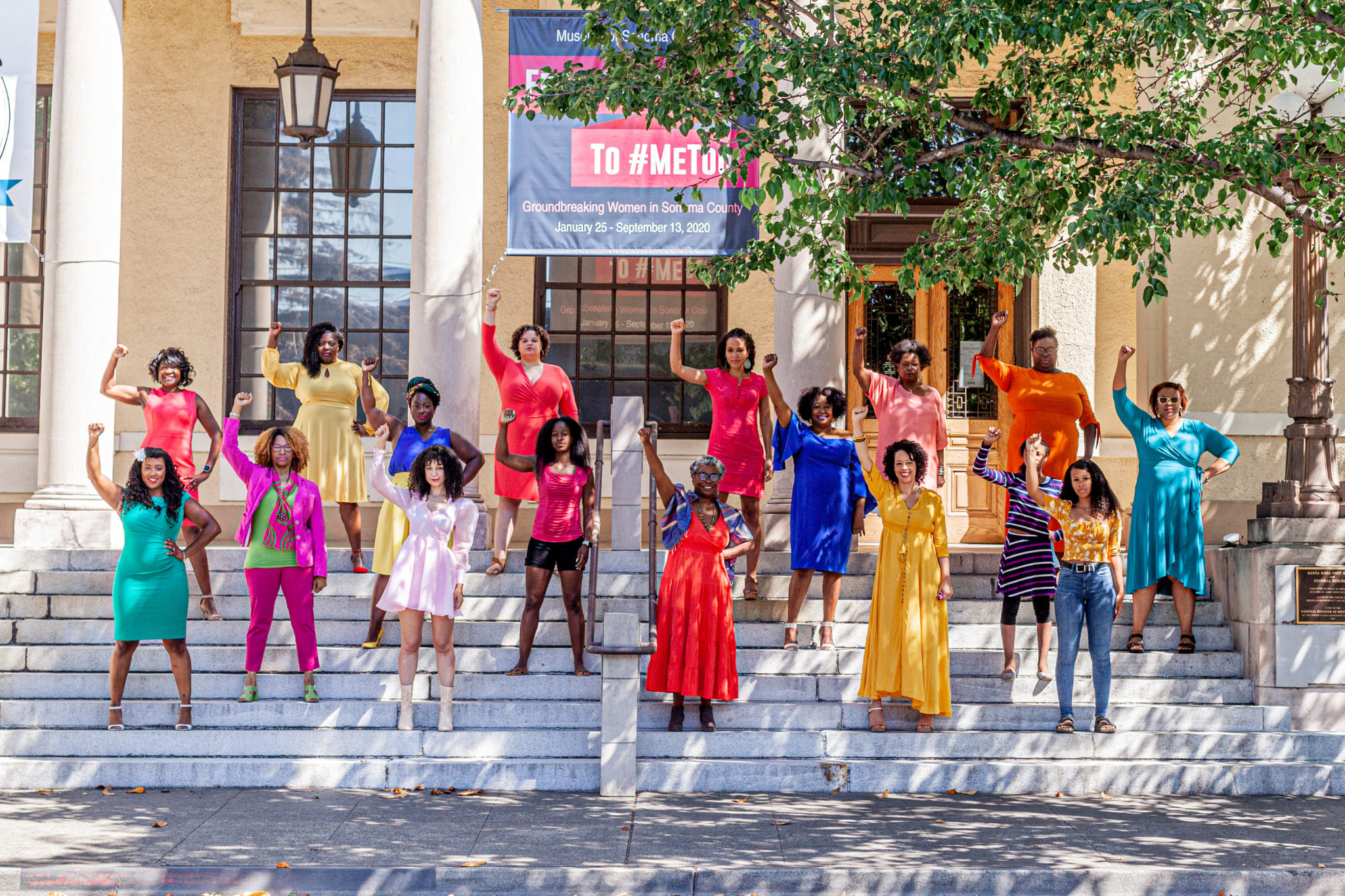
The group photos and individual portraits will be posted online on the women’s websites and social media accounts using three hashtags: #sonomablackwomen, #shareblackwomenstories and #winecountryblackwomen. Anderson will have her story posted on her website maliaanderson.com.
The posts will be shared on Juneteenth, the June 19 holiday that celebrates the end of slavery in the U.S.
“These photos, for me, are an opportunity to see what Black women go through just to get to where we are now,” Anderson said.
Susan Minichiello is a freelance writer based in Santa Rosa. More at susanmini.com.










